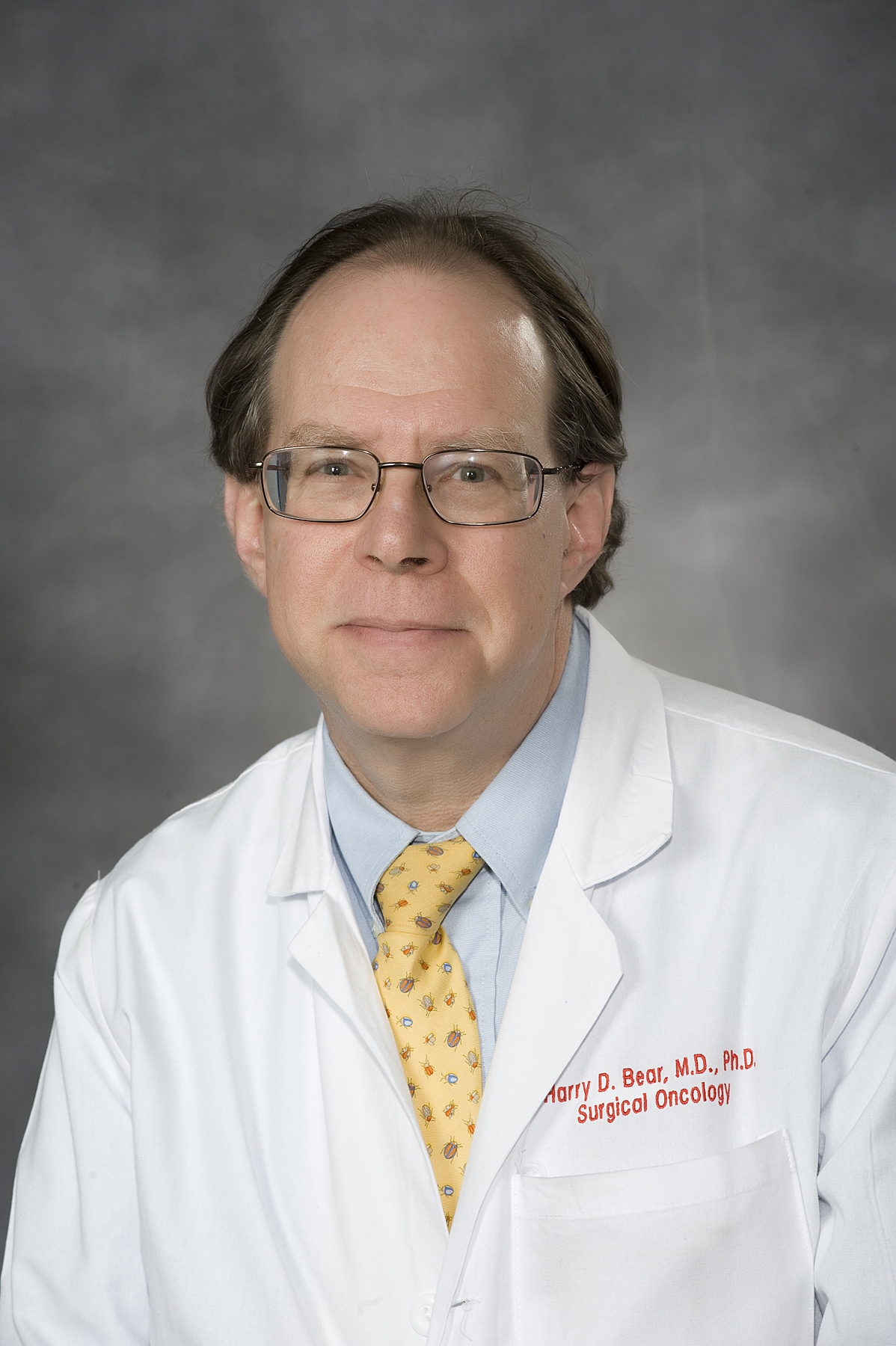Latest News
Research
Massey pilot study could help identify breast cancer patients who would benefit from preoperative hormone therapy as alternative to chemotherapy
Feb 22, 2017

Preliminary findings from a pilot study led by VCU Massey Cancer Center suggest that it may be possible to use genetic testing to identify more breast cancer patients who would benefit from hormone therapy as an alternative to chemotherapy. Hormone therapy, also known as endocrine therapy, lowers estrogen levels or completely restricts estrogen from acting upon breast cancer cells, and its increased use could spare patients from the treatment side effects of chemotherapy and allow for more breast-conserving surgeries.
The findings were presented at the 2016 San Antonio Breast Cancer Symposium by surgical oncologist Harry D. Bear, M.D., Ph.D., director of Breast Health at VCU Massey Cancer Center, the Dr. Walter Lawrence, Jr., Chair in Surgical Oncology and member of Massey’s Developmental Therapeutics research program.
In the pilot study of 59 breast cancer patients, Bear, in collaboration with researchers from seven other institutions, set out to determine whether a 21-gene recurrence scoring system marketed as Oncotype DX could identify which patients would benefit from hormone therapy as opposed to chemotherapy in a neoadjuvant (preoperative) setting.
Oncotype DX examines a group of genes whose activity is linked to cancer growth and development. The results can give doctors insight into which therapies may be most effective for each individual patient.
“Previous international research over the past few decades has established that chemotherapy is a safe and effective neoadjuvant therapy for shrinking breast tumors and potentially minimizing radical surgical treatment,” Bear said. “However, there is significantly less understanding of when breast cancer patients may benefit from hormone therapy prior to surgery.”
Based on their Oncotype DX results, participants were divided into classifications of low, intermediate or high risk of cancer metastasis after surgery. Participants in the high-risk category are known to benefit more from chemotherapy, while participants in the low-risk category are known to benefit from hormone therapy. However, it was unclear what form of treatment most benefits participants with an intermediate score.
Bear’s team randomized intermediate-risk patients to receive either chemotherapy or hormone therapy. They found those who received hormone therapy were able to successfully undergo breast conservation surgery at the same rate as patients who received chemotherapy.
“I think it is a significant advantage for patients to be able to receive hormone therapy and not have to undergo chemotherapy,” Bear said. “There are a number of potential complications and side effects associated with chemotherapy. If you can achieve the same endpoint through a pill with minimal side effects, then I believe that is better.”
Approximately two out of three breast cancers are hormone receptor-positive, meaning that the cancer cells use increased levels of the hormones estrogen and/or progesterone to accelerate growth and division, according to the American Cancer Society. In addition, findings from a study presented at the Society of Surgical Oncology 2016 Cancer Symposium indicated that only about 3 percent of approximately 80,000 U.S. breast cancer patients who were qualified to receive neoadjuvant hormone therapy actually opted for it. The remaining 97 percent chose to undergo chemotherapy, many of whom may not have needed it.
“Neoadjuvant hormone therapy for breast cancer is more common in Europe, but it is underutilized in the United States. I think oncologists have developed a habit of treating patients with chemotherapy when they have a large tumor,” Bear said.
Bear mentioned these early findings may not be definitive and require the encouragement of a larger study with repeated outcomes.
“Essentially, this was a feasibility study to determine if we could do a larger study without too many patients dropping out. Similar findings through a larger study would serve as more convincing, statistically validated proof that patients, particularly in the intermediate score group, would be equally likely to benefit from hormone therapy as chemotherapy,” Bear said.
The research was funded by Genomic Health, Inc., and the Women & Wellness Fund of VCU Massey Cancer Center.
Bear collaborated on this study with Wen Wan, Ph.D., of the VCU Center for Clinical and Translational Research; James Granfortuna, M.D., and Peter Rubin, M.D., of the Cone Health Cancer Center; Judith Hopkins, M.D., of Forsyth Regional Cancer Center; Steven Limentani, M.D., and Richard L. White, Jr., M.D., of Carolinas Medical Center; Dwight Oldham, M.D., of the Lynchburg Hematology Oncology Clinic; Andre Robidoux, M.D., of the Centre Hospitalier de l’Universite de Montreal; Angel Rodriguez, M.D., of Methodist Hospital in Houston; and Amy P. Sing, M.D., of Genomic Health, Inc.
Bear is also a professor of microbiology and immunology at the VCU School of Medicine.
Written by: Blake Belden
Related News
Research
Virginia health leaders emphasize community impact, collaboration at Virginia Public Health Summit on CancerJun 10, 2025
Research, Technology
Groundbreaking TACIT algorithm offers new promise in diagnosing, treating cancerJun 9, 2025

Get access to new, innovative care
Treatments in clinical trials may be more effective or have fewer side effects than the treatments that are currently available. With more than 200 studies for multiple types of cancers and cancer prevention, Massey supports a wide array of clinical trials.

Find a provider
Massey supports hundreds of top cancer specialists serving the needs of our patients. Massey’s medical team provides a wealth of expertise in cancer diagnosis, treatment, prevention and symptom management.
